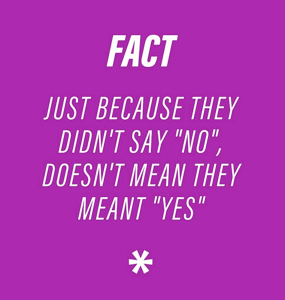What do I do if a student or a colleague discloses a negative sexual experience to me?
If the person disclosing to you is under 17 and you are a mandated person, you are required to report the incident. You can read more about this process here.
If you are a staff member or student leader in a higher or further education institution, your institution may have policies in place for dealing with disclosures of sexual violence and/or harassment from a student or staff member. Contact your institution for assistance (including local support services, policies and procedures) regarding how to handle disclosures and/or mental health support for students and staff.
Here are some tips for responding to someone who tells you about a negative sexual experience from our “Start Here” campaign:
Do say “I believe you”: Opening up about a negative sexual experience can be very stressful, so reassure the person that you believe them, and that you are here to support them and listen.
Don’t say things like “Were you drunk?/What were you wearing?/Are you sure that’s what happened?”: That sounds like you think it’s their fault. Try to listen without judgement.
Don’t rush them into telling the whole story if they don’t want to: Follow their lead – they might just tell you a little bit, or they may need to tell you the whole story.
Do ask how you can help: You could offer to find out about support services. Even just listening can make a huge difference.
Don’t say things like “I can’t believe this, I’m going to kill them!”: While it is difficult to hear about someone’s negative experience, take a breath and try to focus on their feelings, instead of your own.
Don’t pressure them into reporting the incident before they are ready: Whatever happens next should be the survivor’s choice. Pressuring them to take action they don’t want can be disempowering and retraumatizing.
Do ask “What do you want to do next?”: They might not know what they want to do right away, but whatever happens next needs to be the survivor’s choice.
Do remember to look after yourself: Hearing about a negative sexual experience can be very difficult, especially if you have had your own negative experiences. Make time for your own self-care and mental wellbeing.
For more information about support services available for survivors of sexual assault/harassment, visit our Get Help page »















